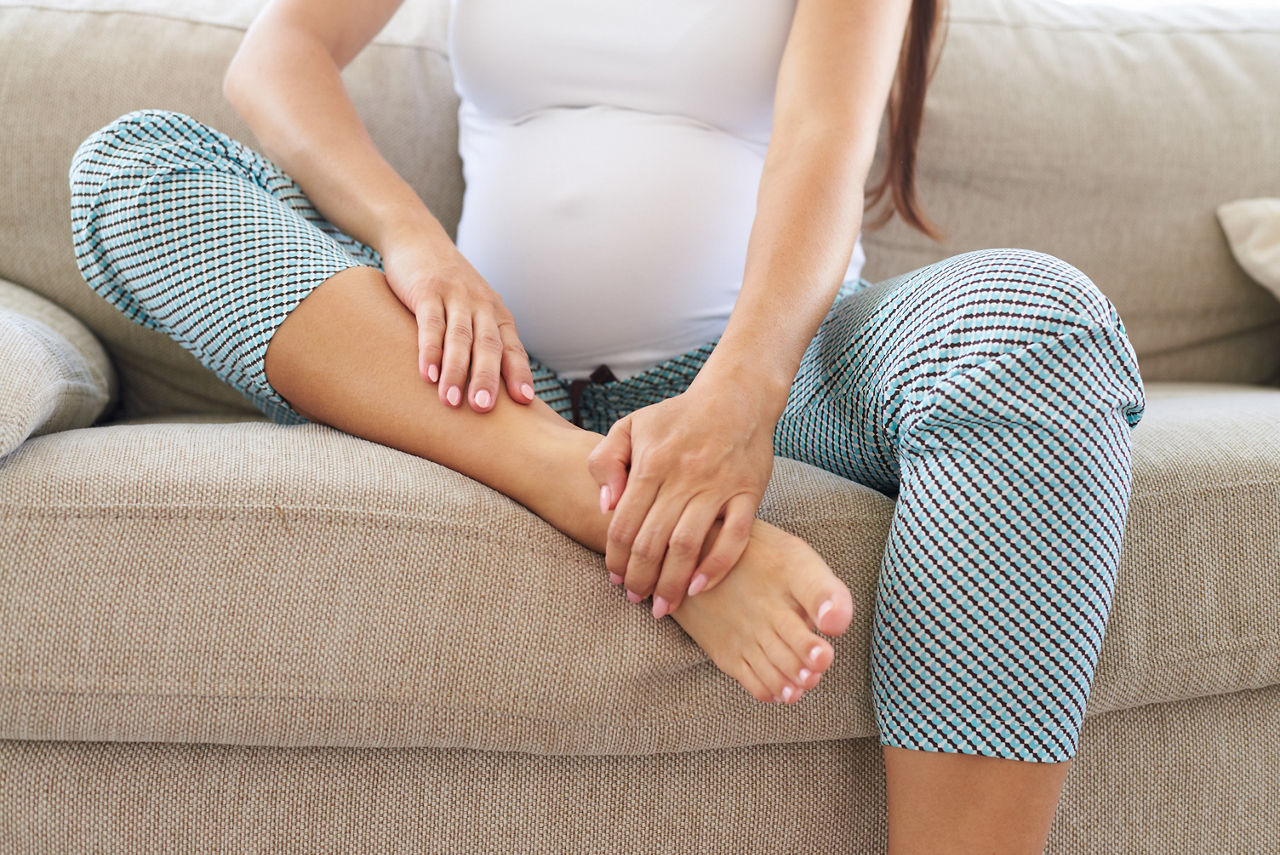Breastmilk is the best for babies. The World Health Organisation recommends exclusive breastfeeding for the first six months of life. Unnecessary introduction of bottle feeding or other food and drinks will have a negative impact on breastfeeding. After six months of age, infants should receive age-appropriate foods while breastfeeding continues for up to two years of age or beyond. Consult your doctor before deciding to use infant formula or if you have difficulty breastfeeding.
- Week 1
- Week 2
- Week 3
- Week 4
- Week 5
- Week 6
- Week 7
- Week 8
- Week 9
- Week 10
- Week 11
- Week 12
- Week 13
- Week 14
- Week 15
- Week 16
- Week 17
- Week 18
- Week 19
- Week 20
- Week 21
- Week 22
- Week 23
- Week 24
- Week 25
- Week 26
- Week 27
- Week 28
- Week 29
- Week 30
- Week 31
- Week 32
- Week 33
- Week 34
- Week 35
- Week 36
- Week 37
- Week 38
- Week 39
- Week 40
Week 29 of Your Pregnancy
Ask around – you’ll find that frequent urination and swollen ankles are some of the common symptoms among expectant women! At 29 weeks, your baby is increasingly energetic and active. Here’s how to ensure your pregnancy diet is a-okay.
The third trimester is a time of great anticipation! Every baby will be different in terms of size and weight, but they are about 26cm long this week, and weigh about 1.1kg. In fact, don’t be surprised to find your baby doubling or even tripling its weight by the end of the third trimester!2
By 29 weeks your baby’s lungs are functioning well. These vital organs will continue to be developed throughout pregnancy and into childhood3. Your baby’s brain is also so developed that it can control functions such as breathing and the regulation of body temperature1.
Has baby been kicking, prodding and poking? At times, it seems your baby loves working up a sweat in your bump1! Take note of your baby’s movements, such as when it is most active, and talk to your doctor if you notice a change in your baby’s moving patterns.
Dealing with Swollen Feet and Frequent Urination
Are your feet and ankles becoming more puffy? Swelling is common, especially during the third trimester. This is because your baby is putting pressure on some of your veins as it grows. As a result, fluid from these veins tend to pool at the bottom of your legs. At the same time, your baby’s position in your womb puts pressure on your bladder, which increases your number of trips to the restroom. To ease the discomfort, here are some tips:
- Prop your legs up when you can
- Do some walking or ankle-rotation exercises
- Cut down on salt (it encourages water retention!)
- Wear support stockings to reduce water pooling
- Drink sufficient water
- Avoid caffeine – it causes your body to increase the release of fluid (Pregnant.sg)
Thinking Ahead — Vitamin K for Labour and Birth
Last but not least, here’s a little reminder. Vitamin K is vital in helping blood clot. If we don’t take enough Vitamin K, baby may suffer from certain complications after birth5. This is why most babies are given a booster shot right after they are born.
Thankfully, we just need a wee bit of Vitamin K – at 0.001mg a day for each kilogram of body weight4. To ensure you get enough Vitamin K, work these foods into your pregnancy diet!
- Green, leafy vegetables such as spinach, broccoli, cabbage and kale
- Vegetable oils, especially soya bean oil
- Eggs
- Lean meat
- Dairy products
¹ Deans A. Your New Pregnancy Bible, The experts’ guide to pregnancy and earlyparenthood. 4th ed. London: Carroll & Brown Publishers Limited, 2013. pp.44-45.
² Murkoff H, Mazel S. What to Expect When You’re Expecting. 4th ed. London: Simon & Schuster Ltd, 2009. p.281.
³ Regan, L. Your pregnancy week by week. London: Dorling Kindersley Limited, 2013. p. 203.
⁴ Department of Health. Report on Health and Social Subjects 41. Dietary Reference Values for Food Energy and Nutrients for the United Kingdom. London TSO. 1991.
⁵ NHS UK. What happens straight after the birth? [Online]. 2014.
Available at: www.nhs.uk/Conditions/pregnancy-and-baby/Pages/what-happens-straight-after-the-birth.aspx [Accessed August 2016].
⁶ British Nutrition Foundation. Vitamins –vitamin K [Online]. 2009.
Available at: www.nutrition.org.uk/nutritionscience/nutrients/vitamins?start=5 [Accessed August 2016].

Connect with our team of experts
We provide advice and support for you on your parenthood journey



